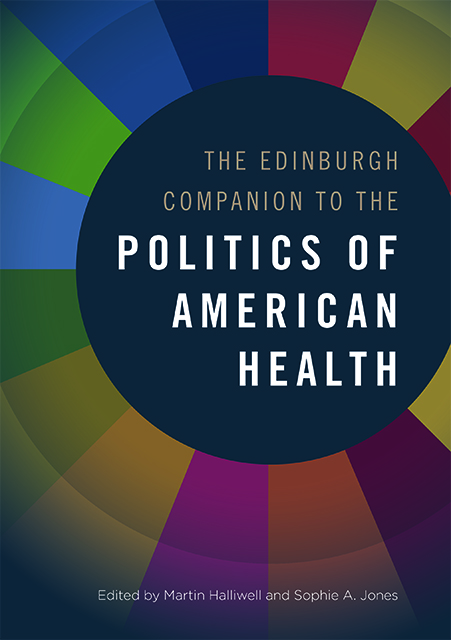Book contents
- Frontmatter
- List of Contents
- Notes on Contributors
- Introduction: The Political Landscapes of American Health, 1945–2020
- I Geography, Community and American Health
- II Critical Health Conditions: Debates and Histories
- III The Politics of Children's Health
- IV The Institutional Matrix of Health Care
- V The White House, Congress and Health Reform
- VI Justice, Ethics and American Health
- VII Public Health and Global Health
- General Bibliography
- Index
2 - Poverty, Health and Health Care in Rural Communities
Published online by Cambridge University Press: 12 August 2023
- Frontmatter
- List of Contents
- Notes on Contributors
- Introduction: The Political Landscapes of American Health, 1945–2020
- I Geography, Community and American Health
- II Critical Health Conditions: Debates and Histories
- III The Politics of Children's Health
- IV The Institutional Matrix of Health Care
- V The White House, Congress and Health Reform
- VI Justice, Ethics and American Health
- VII Public Health and Global Health
- General Bibliography
- Index
Summary
Health and health care are integrally connected to the economic circumstances of individuals and communities in the United States. This connection between economic well-being and health is especially visible in rural areas. Poor rural people tend to be less healthy, more likely to engage in perceived unhealthy behaviour, and have more limited access to health care than more prosperous rural residents. The Covid-19 pandemic made this connection between economic well-being and health starkly clear, as vulnerable and disadvantaged people were much more likely to fall gravely ill with the virus and access to care was more limited in poor places.
Economic restructuring has dramatically changed the availability and quality of work and the economic circumstances in rural places in the US over the last forty years, particularly in poorer rural areas. The jobs residents have are increasingly in the service sector, of which the low-skilled are often low-paying, contingent and without essential benefits such as health insurance. Furthermore, many rural places were still in recovery from the Great Recession of 2008 when the novel coronavirus pandemic hit in early 2020, putting additional strain on rural health care systems and economies. Population loss has also made it challenging for some rural places to maintain their health care infrastructure, leaving often ageing and poor rural residents without local access to essential health care services.
In this chapter, we provide a sociological perspective on the health of residents of rural counties in the US, as well as demographic and economic changes that affect health and access to health care. Then, focusing on the 1990s to the present, we combine secondary data with our own surveys and interviews in order to compare physical and mental health and health care provision in chronically poor rural areas with those in somewhat more prosperous rural places. Our conclusions show how consistently poor rural places fare worse on health, healthy behaviour and access to health care.
Demographic and Economic Trends Affecting Rural Health and Health Care
Geographic isolation and lack of population density have long created challenges for basic health care services in the rural United States. People in rural places are more likely to feel access to good doctors and hospitals is a major problem in their community and they face longer travel times to the nearest hospital than suburban and urban residents.
- Type
- Chapter
- Information
- Publisher: Edinburgh University PressPrint publication year: 2022



